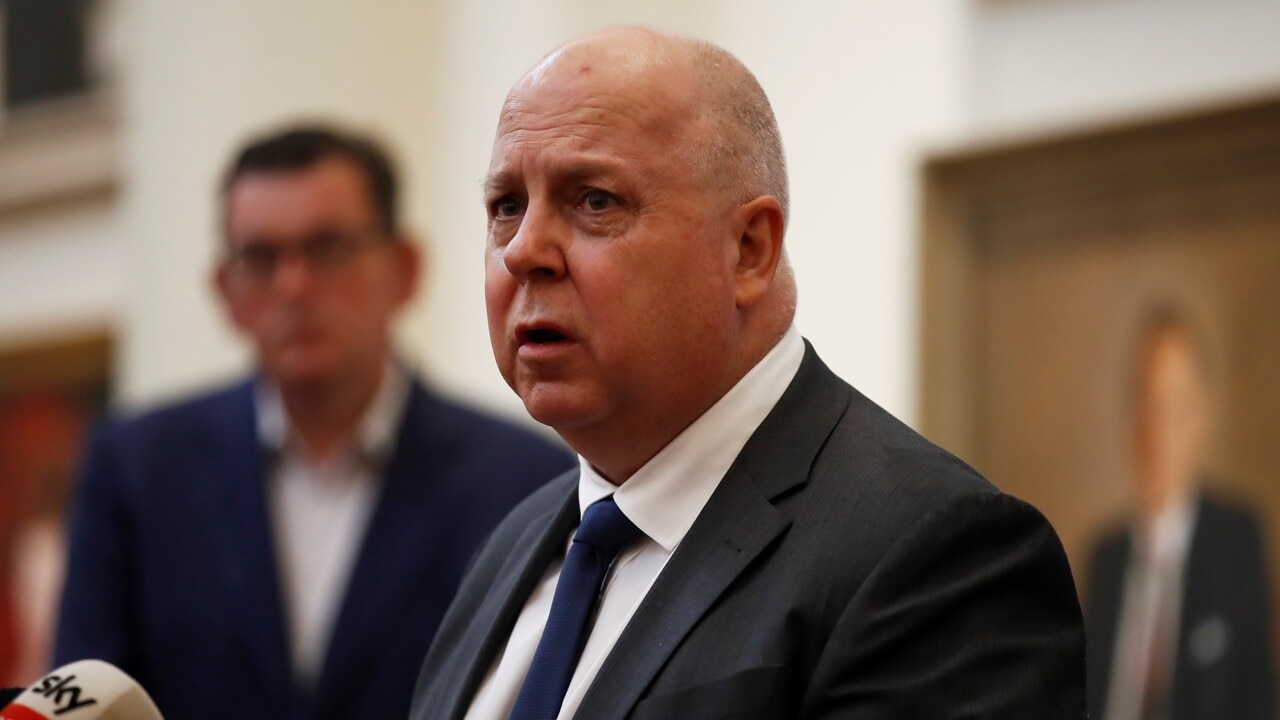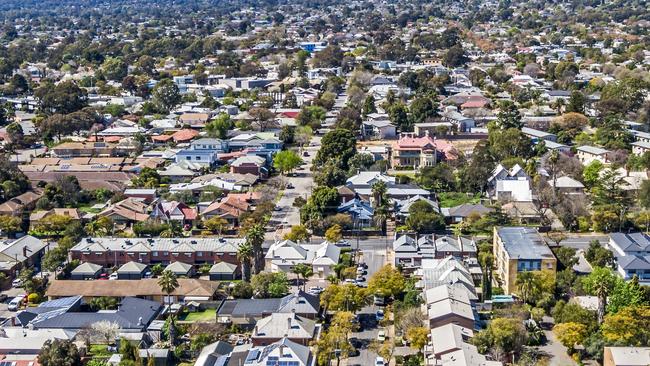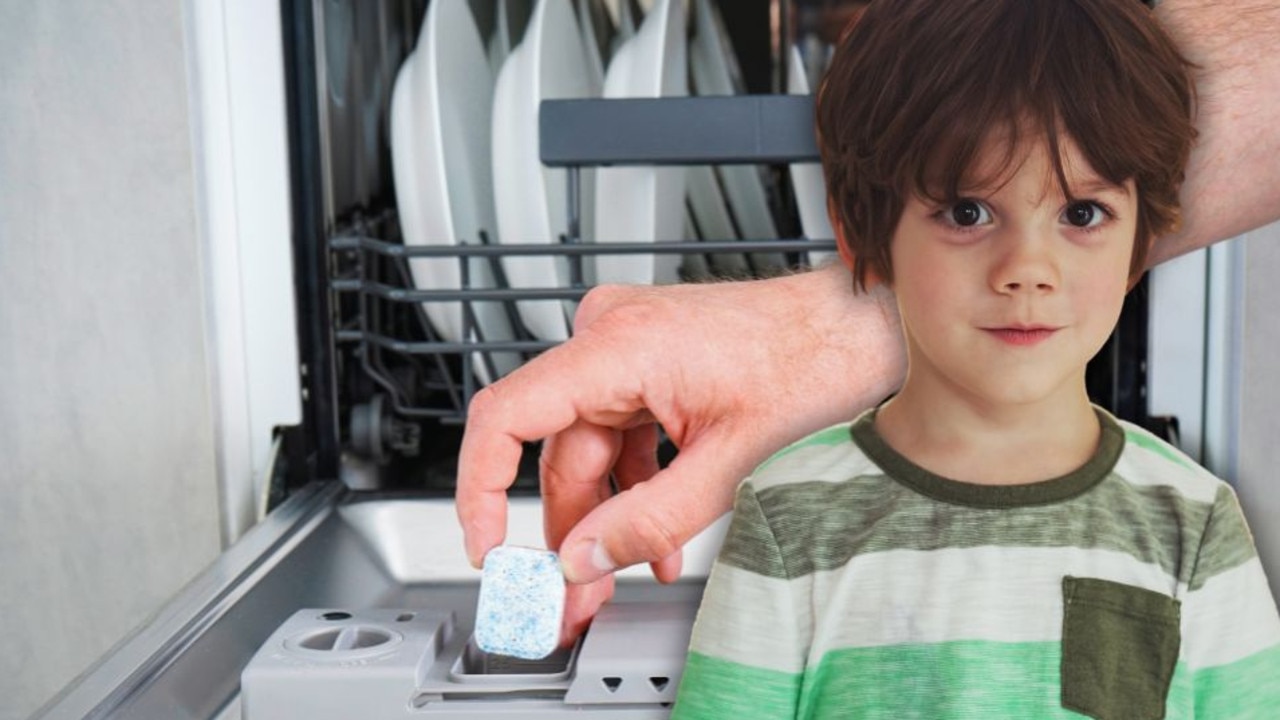Victorians with more than one property hit with new tax
Any Victorian with a second property — holiday homes, investment properties, businesses or offices — will be slugged with a new tax. See how much you’ll have to pay.

Victoria
Don't miss out on the headlines from Victoria. Followed categories will be added to My News.
About 860,000 investment, holiday home, or business property owners will be whacked with extra taxes worth $4.7bn over the next four years, to help pay down Victoria’s soaring debt.
Any property owner who pays land tax – which is not levied on family homes, primary production land, charities and residential care facilities – on land worth more than $50,000 will cop the hit.
Treasurer Tim Pallas said the new charges would be almost $1300 a year for investors who own an average parcel of land worth $650,000.
He said they would remain in place for a decade to pay down part of the government’s “Covid debt” worth $32bn.
Of the 860,000 taxpayers impacted, Mr Pallas said about 380,000 had not been subject to land tax before and were “first time” payers.
This is because the current tax-free threshold of $300,000 will be slashed to just $50,000.
On top of this, a fixed charge will be levied on land tax bills for property owners, starting at $500 for a piece of land worth $50,000-$100,000.
For land worth more than $100,000, there is a $975 fixed charge, and an extra payment for those with land values higher than $300,000.
The charges will remain in place for the next decade.
Land tax is levied on the value of a parcel of land, rather than the capital-improved value that is used to work out council rates.

Another new tax will be slapped on businesses with a payroll of more than $10m a year, at a rate of 0.5 per cent.
Bigger companies, with payrolls of $100m, will pay an additional 0.5 per cent on top of that, bringing in a total of $3.9bn over four years.
In total, the twin tax hikes will raise $8.6bn – all of which will pay down what Treasurer Tim Pallas has called “Covid debt”.
Mr Pallas said it was important to pay down the borrowings and lost revenue sparked by government decisions during the pandemic which “saved lives” so that children who remember the trauma of Covid-19 won’t have to pay for it.
Labor has earmarked almost $32bn of borrowings and lost revenue as “Covid debt”, which will be paid down or offset through the state’s Future Fund’s earnings, over the next decade.
Cuts to the public service, worth $2.1bn, will also contribute to the debt repayment.
The State Budget includes revenue forecasts for four years, but the tax changes will be in place for a decade, which Mr Pallas said would reduce Covid debt to a level that matches the amount of money in the state’s Future Fund – effectively offsetting the costs of that debt by 2033.
He said that other changes being introduced to the budget, including lifting the payroll tax-free threshold from $700,000 to $900,000 from next year, and to $1m the following year, would help 26,000 small businesses.
He said 6000 companies would save $14,450 in tax through the changes to the thresholds.
Business insurance duty will also be phased out over a decade.
As revealed by the Herald Sun, stamp duty will be replaced with land tax for businesses from next year.
Real Estate Institute of Victoria chief executive Quentin Kilian said that the decision to hike land tax on 860,000 investors in the middle of a rental crisis was “probably the most nonsensical and abhorrent decision a government could make”.
He said people would be driven from the investment market which would cause stock shortages worse than at the current low levels, or rent increases if people kept properties.
“If you thought the rental crisis was tough now, watch what happens when you drive the suppliers of rental stock away,” he said.
Mr Kilian said 70 per cent of investors had a single property, and that 43 per cent of those earn less than $100,000 a year.
“In real terms they are probably carrying some sizeable mortgages on those properties,” he said.
The decision to reduce the land tax-free threshold to $50,000 will now capture “almost everyone” and that the fixed charge on top of that was a “tax on a tax”.



